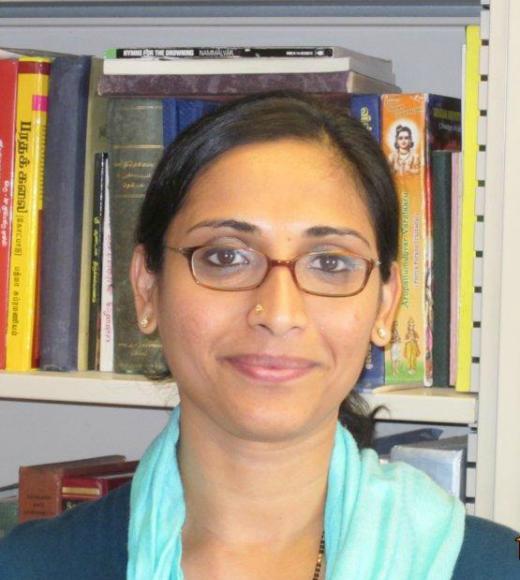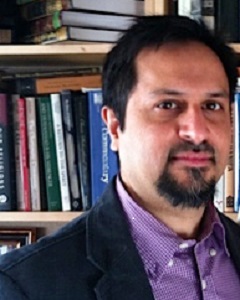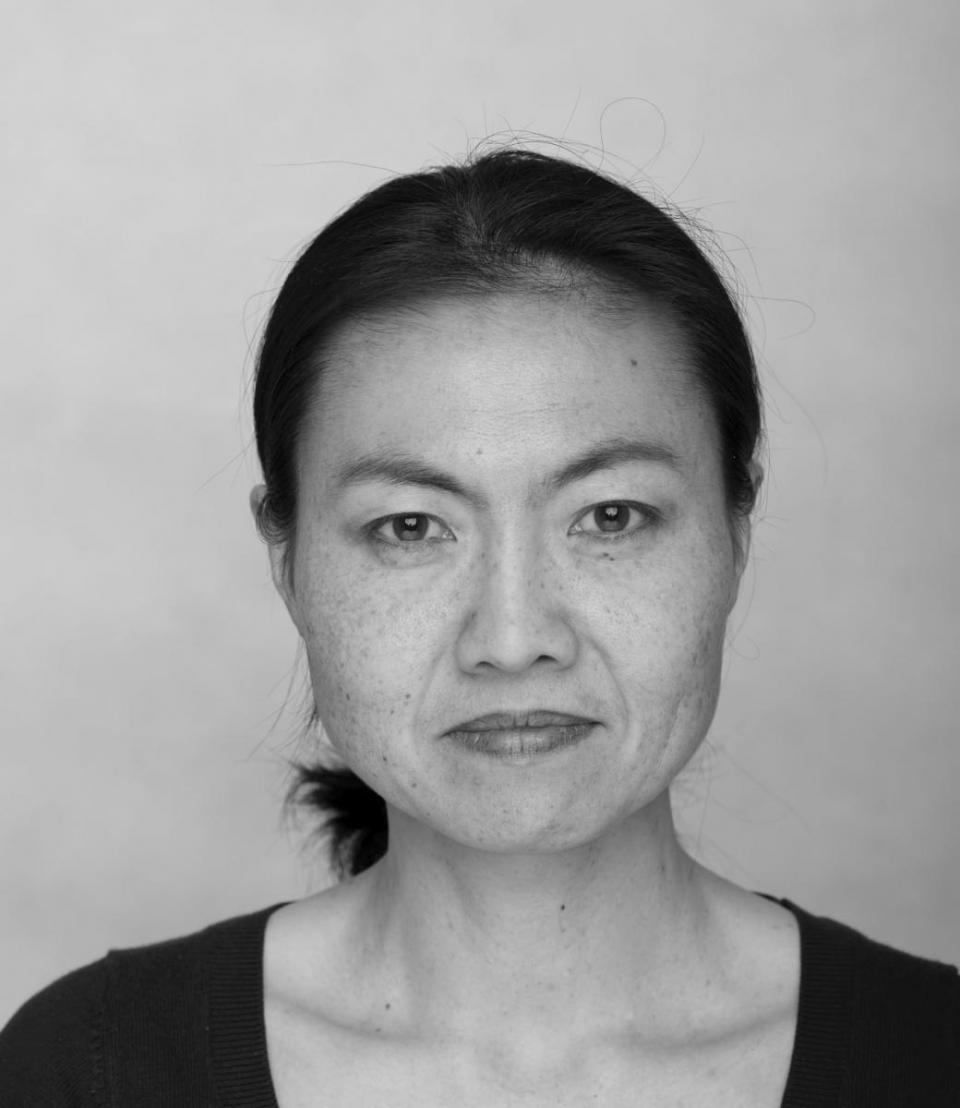Schedule
2021-2022
SEPTEMBER 22 MICHAL ZECHARIAH
Satanic Ingratitude and Psychological Determinism in Paradise Lost
Christian authors aware of the immeasurable disproportion between the limitlessness of divine beneficence and the meagerness of the human ability to repay it have often relied on gratitude as an empowering virtue. Although one can never repay one's debt to God with actions, the believer's debt is continuously repaid through their feeling of gratitude. In Milton's Paradise Lost, ingratitude is the epitome of Satan's rejection of God. But surprisingly, Milton's representation of ingratitude also undermines the empowering aspects of grateful repayment. In Satan's self-understanding, ingratitude is a fixed affective disposition, unresponsive to moral or intellectual insight, and incapable of change. This talk discusses Milton's representation of ingratitude as a recalcitrant emotion in his epic poem, and suggests that it reveals his genuine concern about the possibility of psychological determinism at odds with his otherwise staunch defense of free will.

Dr. Michal Zechariah is a teaching fellow in the humanities at the University of Chicago. Her book project on Unmoved Emotions in Shakespeare and Milton examines how emotional unresponsiveness challenges moral constructions in Shakespeare's and Milton's works. At the University of Chicago, she also founded and organized the Affect and Emotions Workshop, a multidisciplinary forum for scholars in the humanities and social sciences. Her translation of excerpts from Paradise Lost into Hebrew appeared in Ho! Literary Magazine.
OCTOBER 29 SAMEER YADAV
Gratitude in a Christian Affective Economy: From Debt to Sacrament
On Robert Roberts' analysis of gratitude, to be grateful is to recognize oneself to be placed in the debt of a benefactor for their benevolence in bestowing benefit beyond what it owed, prompting a desire to express one's indebtedness and attachment to one's benefactor in some token return benefit. Roberts takes this analysis to apply not only to ordinary everyday gratitude, but also "cosmic" gratitude, where the fitting object of gratitude is God, who has bestowed on us the goodness of the world, the givenness of which remains unaccountable in terms of human agents. In this talk I offer a critique of this analysis for its dependence upon an affective economy of debt-bondage. I look instead to the connection of gratitude to "radical amazement" in A.J. Heschel and the appreciation of holiness in Howard Thurman to elucidate an alternative analysis of Christian gratitude that turns not on debt-obligation but sacramental offering.

Dr. Sameer Yadav (Th.D. Duke Divinity School) is Associate Professor of Religious Studies at Westmont College in Santa Barbara, CA. His research areas are in the philosophy and theology of religious experience, race and religion, and the theological interpretation of Scripture. He is the author of The Problem of Perception and the Experience of God: Toward a Theological Empiricism (Fortress Press, 2015), a number of articles published in various journals such as The Journal of Analytic Theology, Faith and Philosophy, and The Journal of Religion among others, as well as a number of chapters in edited volumes.
FEBRUARY 23 ARCHANA VENKATESAN
Impossible Gratitude: Awakening to Gratefulness in the Tamil Tradition
What does it mean to be grateful in the Tamil tradition? How does one express gratitude? What are the limits of gratitude when the Tamil tradition lauds generosity as limitless? I explore these questions through close readings of sections from the 12th century Tamil Ramayana of Kampan, the Tirukkural, the 5th century ethical treatise on the well-lived life, and two 9th century devotional poems composed by the poet, Sathakopan-Nammalvar. Each of these textual encounters offers slightly different answers to the above, while also grappling with the impossibility of gratitude. Paradoxically, to be grateful is a mark of virtue and one must learn to be grateful, express in words, and offer recompense in some way. In this talk I hope to explore how three very different poets try to resolve this tension -- what it means to master an impossible (perhaps even futile) virtue.

Archana Venkatesan is Professor of Religious Studies and Comparative Literature at the University of California, Davis. Her research interests lie at the intersection of text and performance in South Asia, as well as in the translation of early and medieval Tamil ecstatic poetry into English. Her numerous publications include Endless Song, a translation of Nammalvar's Tiruvaymoli (2020), In Andal's Garden (2015), A Hundred Measures of Time, a translation of Nammalvar's Tiruviruttam (2013), and The Secret Garland: Antal's Tiruppavai and Nacciyar Tirumoli (2010). Some of her current research projects include a translation of the Sundara Kandam of Kampan's Ramayana for the Murty Classical Library of India, as well as a collaborative study of the Nava Tirupati, a network of nine Vishnu temples situated in Tamil Nadu, India.
APRIL 1 ATIF KHALIL
Gratitude as Virtue and Vice: Critical Reflections from the Sufi Tradition
In recent years, gratitude has slowly emerged at the forefront of scholarly inquiry, particularly in the field of positive psychology. At the center of this growing interest stands the work of Robert Emmons, who has become one of the most well-known advocates for the active cultivation of the virtue, and who has contributed, through both academic and popular writing, to the spawning of the "gratitude movement." Yet not everyone sees the unqualified promotion of the virtue as an entirely beneficial, or even harmless enterprise, because appeals to its social cultivation risk fostering complacency about very real social problems that need to be critically and concretely addressed. What, if anything, might the Sufi tradition have to say about this debate centering around a virtue that lies at the heart of Quranic piety, and, by extension, Islamic spirituality? What resources lie within the Sufi tradition to critically engage this debate? This presentation will explore these possibilities, with special attention to the question of when a virtue becomes a vice.

Atif Khalil (PhD, University of Toronto) is Associate Professor or Religious Studies at the University of Lethbridge. His primary area of research lies in Sufism, with secondary interests in Islamic philosophy and theology, virtue ethics, comparative mysticism, interfaith relations, traditions of non-duality, and, more recently, mysticism and the Near Death Experience. He is the author of Repentance and the Return to God: Tawba in Early Sufism (2018) and is currently composing a second monograph on the Sufi practice of dhikr, tentatively titled The Wine of Divine Remembrance: Meditation in Classical Sufism.
2020-2021
FEBRUARY 24 LARA HARB
Wonder and Appreciation: What Arabic Aesthetics Can Teach Us About Gratitude
Zakariyya al-Qazwini (1203-1283), the author of an encyclopedic work entitled The Marvels of Creation, exclaimed that everything in the world is cause for our wonder; familiarity and frequent observation are the only reasons our fascination is dulled. Arabic literary critics saw the function of poetry as being to re-instill this sense of wonder in the listener. It is through wonder that we can rediscover the familiar and learn to appreciate it. This talk delves into the magical ways this can take place through language, according to classical Arabic literary theory.

Lara Harb is Assistant Professor of Near Eastern Studies at Princeton University. She received her PhD from New York University’s Department of Middle Eastern and Islamic Studies (2013) and holds a BA in Comparative Literature from Brown University (2004). Prior to Princeton, she was Assistant Professor at Dartmouth College. She specializes in Classical Arabic Literature and her research focuses on medieval Arabic literary criticism and theory. Her first book, Arabic Poetics: Aesthetic Experience in Classical Arabic Literature (Cambridge: Cambridge University Press, 2020), looks at medieval Arabic conceptions of poetic beauty. Her second book project, tentatively titled Mimesis in Classical Arabic Literature, for which Harb was awarded a National Endowment for the Humanities (NEH) grant, investigates conceptions of literary representation in classical Arabic literature. Harb has published articles on the influential 11th-century theorist ʿAbd al-Qāhir al-Jurjānī, on “intermedial” poetry in 10th-century Iraq, and the use of Persian in early Abbasid poetry. Harb is a member of the editorial board of the Library of Arabic Literature, a series based out of New York University Abu Dhabi, which makes available Arabic editions and English translations of significant works of Arabic literature, with an emphasis on the seventh to nineteenth centuries.
MARCH 24 CURIE VIRÁG
“Gratitude as a Cosmic Virtue in Early China”
One of the theoretical challenges of the idea that gratitude is a virtue has to do with its way of bringing together notions of duty and obligation, on the one hand, and freely given feelings of love and appreciation, on the other. Thus, the kindness or generosity of a benefactor creates a special kind of “debt of gratitude” to which the beneficiary presumably responds with genuine feelings of gratitude. This is a difficult marriage that has led to an intensified focus on the emotional register of gratitude as something detached from the logic of repayment. Early Confucian ritual metaphysics presents us with an opportunity to rethink this framework, providing a model in which the debt of gratitude and its emotional response seem to be inextricably bound together through a quantitative correspondence. In the Analects, Confucius reproaches a disciple for declaring that the three-year mourning period for one’s parents is excessive, and that one year is sufficient. For Confucius, the three-year period is fitting, given the three years’ worth of love and caring that parents devote to their children in the early phase of one’s life. This numerical correlation of benefit received and love that is due runs against the intuition that feelings of gratitude must be spontaneously and freely given. My paper considers how we might understand this quantified logic of gratitude as a virtue, situating the issue within a distinct cosmological framework governed by certain norms of responsiveness and right measure. In so doing, it proposes ways in which early Chinese approaches to gratitude might help us to expand our notions of what gratitude is and how it serves to map our place in the world.

A specialist in the history of philosophy in China, Dr. Virág is author of The Emotions in Early Chinese Philosophy. Her current book project, tentatively titled The Emotions in Medieval China, continues her investigation of the evolving history of emotions through the Tang and Song periods (8th-12th centuries). She is currently based at the University of Edinburgh, where she is Senior Researcher and Co-Project Director of PAIXUE (http://paixue.shca.ed.ac.uk/), a cross-cultural and cross-disciplinary research project funded by the European Research Council dedicated to classicising learning in medieval Chinese and Byzantine thought and learned culture. Prior to this, she was Assistant Professor in the Department of East Asian Studies at the University of Toronto and Visiting Professor in the Department of Philosophy at Central European University Budapest. Dr. Virág has been actively involved in cross-cultural and cross-disciplinary projects dedicated to topics of broad philosophical significance, and is currently co-editing a volume with Douglas Cairns titled In the Mind, In the Body and in the World: Emotions in Ancient Greece and Early China.
APRIL 21 CYRUS ZARGAR
Gratitude and the Uncluttered Mind: ʿAṭṭār’s “Religion of Old Women”
“The best among people,” Avicenna says, “is the one whose soul is perfected by becoming an intellect.” Such perfection, however, is an opportunity not suited for everyone. According to Avicenna and other medieval Muslim philosophers, the unintelligent have little ability to grasp universals and thus, instead of being encouraged to do so, must be controlled by revealed law. In stark opposition, the poet Farīd al-Dīn ʿAṭṭār, influenced by other Sufi-influenced writers in eastern Iran, challenges such intellectual elitism. ʿAṭṭār advocates a search for the Real by means of a disposition, a highly attuned outlook. He describes that outlook—grateful, receptive, intellectually simple, reliant on God and in constant conversation with Him—as the “religion of old women.” This phrase originates in a famous saying of the Prophet Muhammad, one that ʿAṭṭār sees as applying most perfectly to the female saint Rābiʿa. In doing so, ʿAṭṭār presents an ethos attainable by all, but nearer at hand to those who know God with an innocent, guileless, and even unlettered sincerity.

Cyrus Ali Zargar is the Endowed al-Ghazali Distinguished Professor in Islamic Studies in the Department of Philosophy at the University of Central Florida. He received his PhD from the University of California, Berkeley's Department of Near Eastern Studies (2008) and holds a BA in English Literature from the University of California, Los Angeles (2000). Prior to UCF, Zargar taught in the Department of Religion at Augustana College. His research focuses on classical Sufism, Islamic philosophy, Arabic and Persian Sufi literature, and ethics in literature and film. Zargar is the author of two monographs, Sufi Aesthetics: Beauty, Love, and the Human Form in the Writings of Ibn 'Arabi and 'Iraqi (2011) and The Polished Mirror: Storytelling and the Pursuit of Virtue in Islamic Philosophy and Sufism (2017), with a third monograph, Religion of Love: Farid al-Din 'Attar (d. 1221) and the Sufi Tradition, forthcoming.